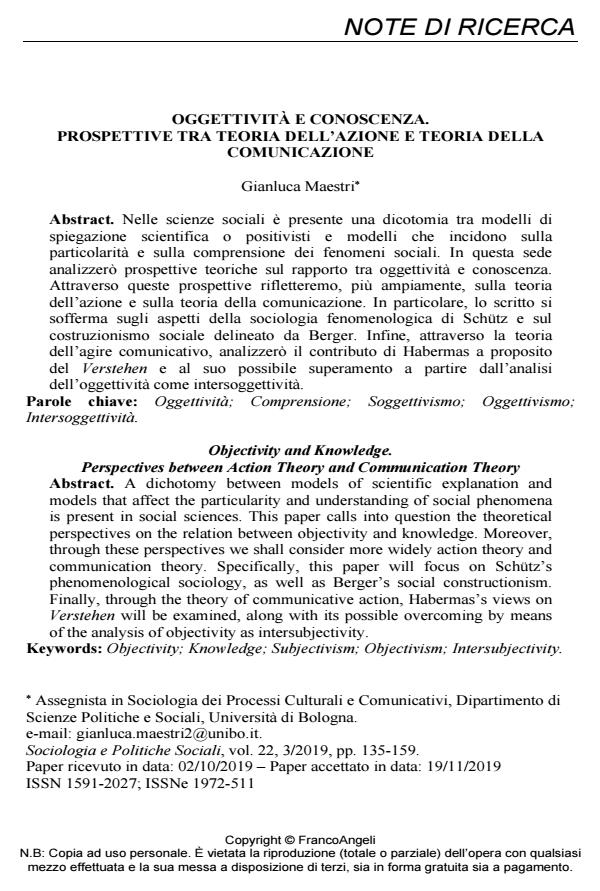Oggettività e conoscenza. Prospettive tra teoria dell’azione e teoria della comunicazione
Journal title SOCIOLOGIA E POLITICHE SOCIALI
Author/s Gianluca Maestri
Publishing Year 2020 Issue 2019/3
Language English Pages 25 P. 135-159 File size 281 KB
DOI 10.3280/SP2019-003007
DOI is like a bar code for intellectual property: to have more infomation
click here
Below, you can see the article first page
If you want to buy this article in PDF format, you can do it, following the instructions to buy download credits

FrancoAngeli is member of Publishers International Linking Association, Inc (PILA), a not-for-profit association which run the CrossRef service enabling links to and from online scholarly content.
Nelle scienze sociali è presente una dicotomia tra modelli di spiegazione scientifica o positivisti e modelli che incidono sulla particolarità e sulla comprensione dei fenomeni sociali. In questa sede analizzerò prospettive teoriche sul rapporto tra oggettività e conoscenza. Attraverso queste prospettive rifletteremo, più ampiamente, sulla teoria dell’azione e sulla teoria della comunicazione. In particolare, lo scritto si sofferma sugli aspetti della sociologia fenomenologica di Schütz e sul costruzionismo sociale delineato da Berger. Infine, attraverso la teoria dell’agire comunicativo, analizzerò il contributo di Habermas a proposito del Verstehen e al suo possibile superamento a partire dall’analisi dell’oggettività come intersoggettività.
Keywords: Oggettività; Comprensione; Soggettivismo; Oggettivismo; Intersoggettività.
- Sfide e tradimenti. Accoglienze e territori nelle trasformazioni del diritto di asilo Magda Bolzoni, Davide Donatiello, Leila Giannetto, in SOCIOLOGIA URBANA E RURALE 133/2024 pp.86
DOI: 10.3280/SUR2024-133006
Gianluca Maestri, Oggettività e conoscenza. Prospettive tra teoria dell’azione e teoria della comunicazione in "SOCIOLOGIA E POLITICHE SOCIALI" 3/2019, pp 135-159, DOI: 10.3280/SP2019-003007